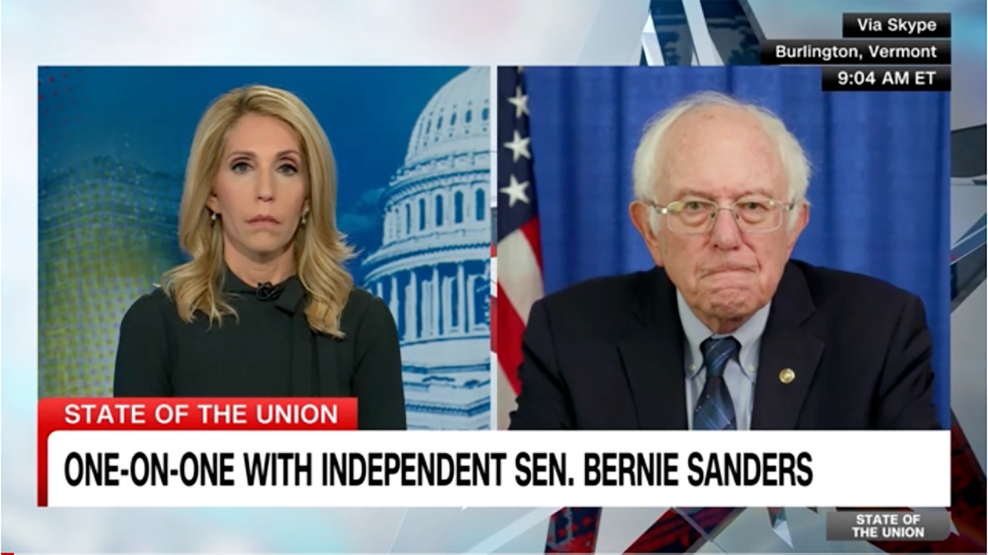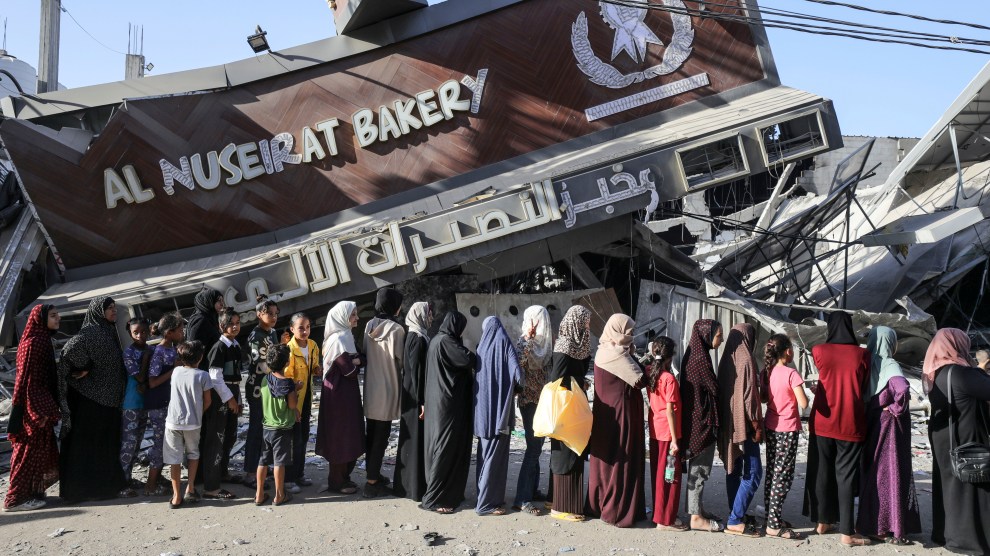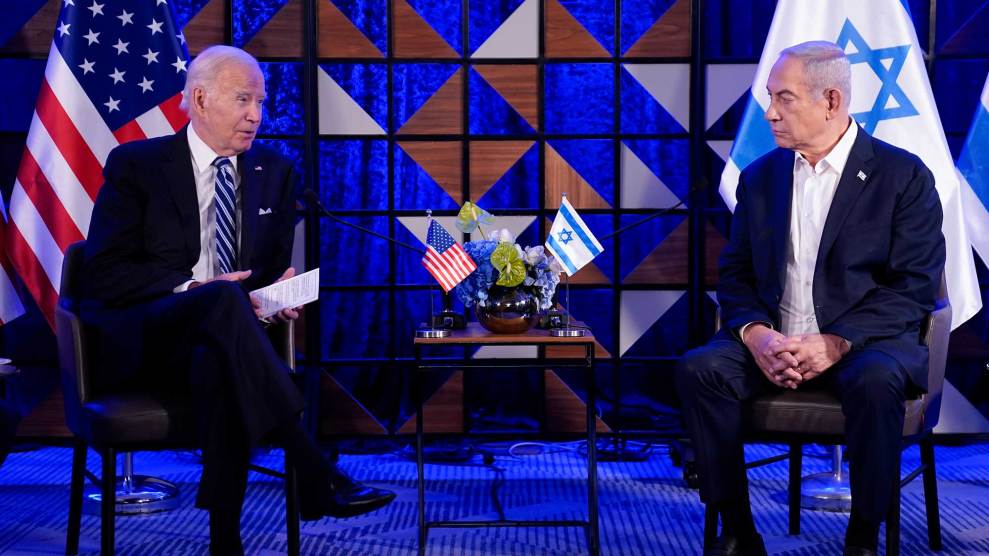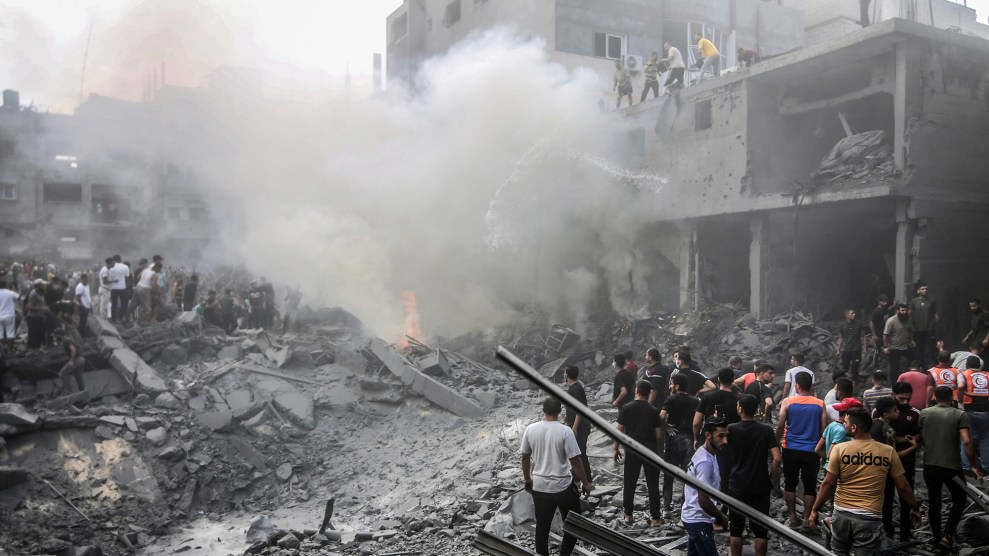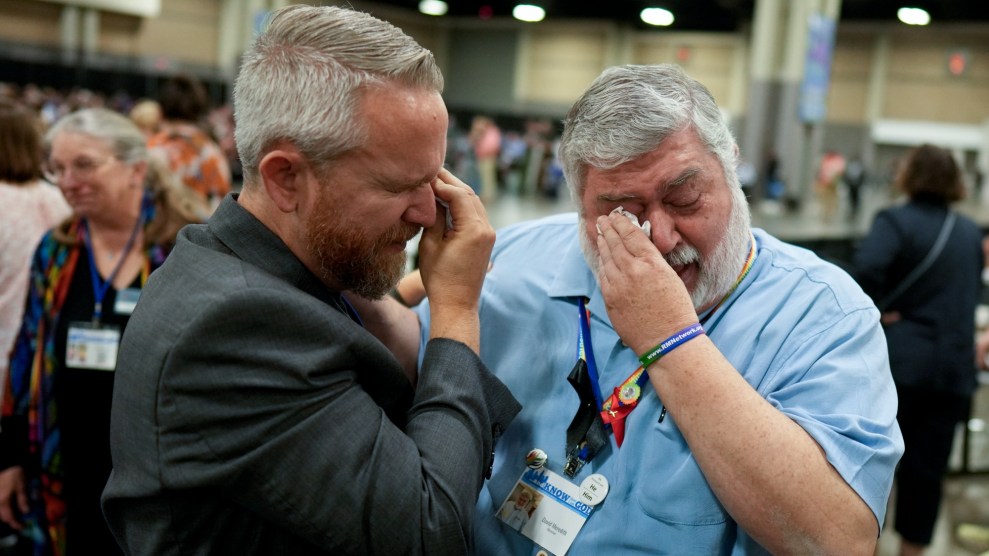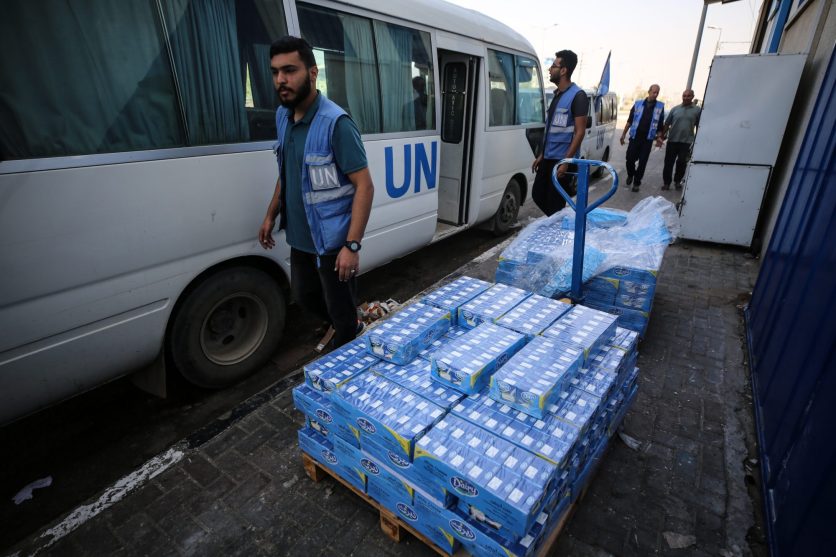
United Nations workers prepare aid for distribution to Palestinians, who have fled their homes due to Israeli strikes and take shelter in a UN-run school, in the Nuseirat refugee camp in the central Gaza Strip, on November 4, 2023.Majdi Fathi/NurPhoto via ZUMA Press
A record number of United Nations aid workers have been killed in the ongoing conflict between Israel and Hamas, according to information released yesterday.
Eighty-eight people employed by the United Nations Relief and Works Agency for Palestine Refugees in the Near East—tasked with providing essential services for Palestinian refugees—have been killed since October 7, marking “the highest number of United Nations fatalities ever recorded in a single conflict,” according to a statement issued by the Inter-Agency Standing Committee, which coordinates humanitarian relief efforts between the UN and external partners.
The statement, signed by 18 executives within and outside of the UN, calls for “an immediate humanitarian ceasefire.”
“It’s been 30 days. Enough is enough,” it says. “This must stop now.”
The latest death toll of aid workers in Palestinian territories marks a major increase compared to in years past: 38 aid workers total were killed in occupied Palestinian territories over the past two decades, according to an alert issued last month by Aid Worker Security Database, a project funded by the US government.
The deaths of the aid workers are among the more than 10,000 people killed in Gaza—including more than 4,100 children, according to the Gaza Health Ministry—and 1,400 Israelis killed.
The stark death toll, both of civilians overall and of UN aid workers specifically, comes amid infighting at the UN, which Politico reported is in “disarray” over the conflict, with members of the Security Council sparring over the text of proposed resolutions and diverging over whether or not to call for a ceasefire, which the US has refused. An official in the human rights office resigned in protest last week over the organization’s handling of what he called “a text-book case of genocide” of Palestinians.
Palestinians are living on minimal food—only two pieces of bread a day, according to one UN official; pregnant women and children in Gaza are particularly suffering by virtue of their vulnerable status; health care workers have been attacked, and the UN said Friday at least 150 have been killed. Dozens of journalists—mostly Palestinian—have been killed, leading the press freedom group Reporters Without Borders to request that the International Criminal Court investigate the deaths as war crimes.
Tens of thousands of people marched in Washington, DC, calling for a ceasefire in Gaza on Saturday, as my colleague Ali Breland reported. Tens of thousands also protested in London and New York the week prior.
But with few exceptions, politicians have largely avoided explicitly calling for a ceasefire, including President Biden, who instead called for a humanitarian “pause” to deliver aid to Gaza.
